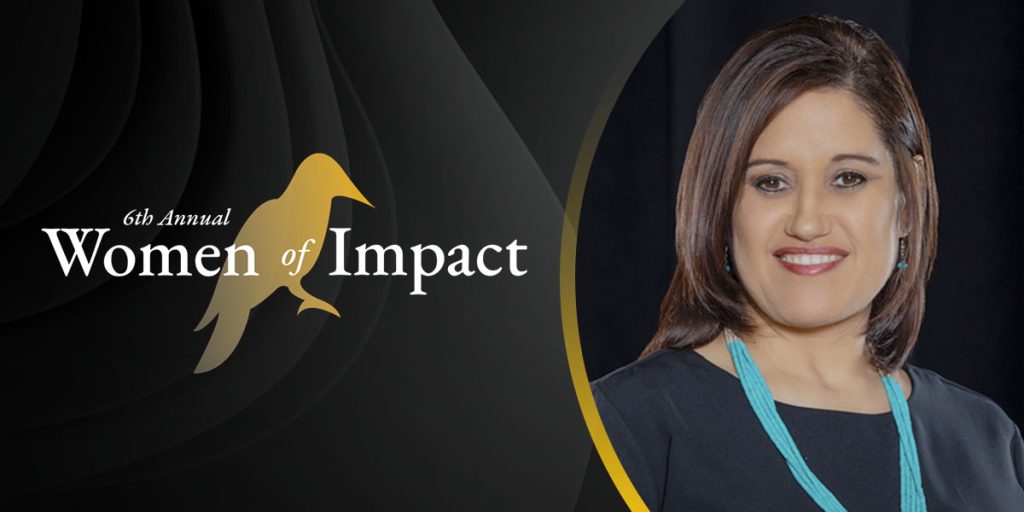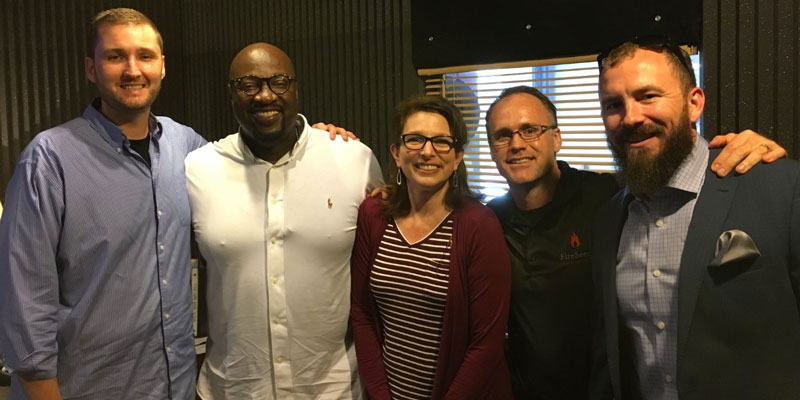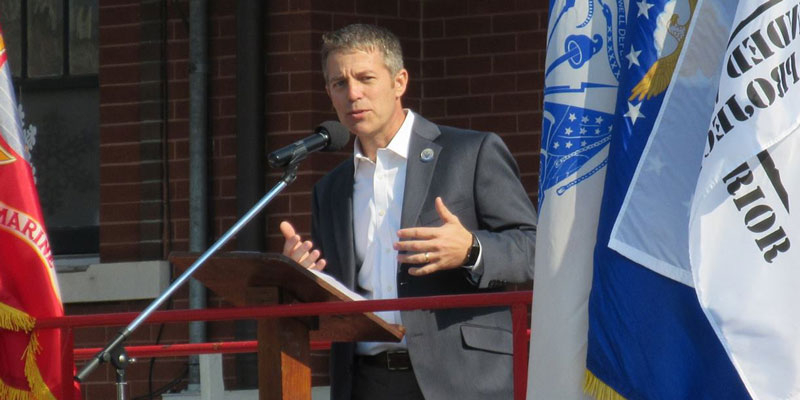Justin Harris with Fireseeds joins Yellowhammer Radio co-hosts Andrea Tice and Scott Chambers to discuss the difficult task of replacing a team member who has left your company and how to effectively retain them.
Justin works alongside Cord Sachs who is a Birmingham-based leadership expert and the CEO of FireSeeds, a company that helps companies find and grow great leaders and “the company behind many of Alabama’s fastest growing companies.”
The full conversation with Justin can be heard on the Yellowhammer Radio podcast or in the video above, and a lightly edited transcript of his interview with Yellowhammer’s Andrea Tice and Scott Chambers can be read below.
Subscribe to the Yellowhammer Radio Podcast on iTunes. Learn more about Cord Sachs and Fireseeds at www.fireseeds.com
Scott Chambers: Welcome back. It’s Yellowhammer Radio, super station 101 WYDE. She’s Andrea Tice. I’m Scott Chambers. Down to the final 11 minutes of the program, Justin Harris joins us today in for Cord Sachs. How are you today, Justin?
Justin Harris: Oh, man, doing terrific. Thanks for having me on, guys.
Scott Chambers: Thanks for being here, man.
Andrea Tice: Good to have you on board.
Scott Chambers: Well, we’ve been talking to Cord each and every week, some great topics always. And today, Justin, I understand we’re gonna talk about how to keep your best employees. Is that right?
Justin Harris: That’s exactly right. I just think about independent people working, how it much it costs to lose an awesome team member and then have to replace them. It’s just a massive pain in the neck. It cost so much money. And so, just thinking about this is absolutely critical. And I think most organizations that are out there, whenever they think about losing a great team member it just gives them heartburn, right? And so it’s definitely a big problem you gotta solve.
Scott Chambers: Well Justin, how can an organization keep its best people?
Justin Harris: Well, here’s the thing. Most people just think it’s all about the money, and this goes way back to the Industrial Age in terms of the way people treat employees. Money is important, but people are more than just widgets. They’re more than just things that you plug into a system. That’s important. People want to be paid a fair wage, but once you pass that, it actually has very little to do with money. Let me ask you guys a question. Take just a minute, tell me about your favorite teacher or coach that you guys have had. What were some of the things that they did to make you want to follow them?
Andrea Tice: Well, the best teacher I had was also the one I hated the most, because she pushed me and made me do a lot more than I ever wanted to do.
Justin Harris: Right, right. That’s huge. Think about that: most teachers or coaches that you think about in the past, they pushed you, they challenged you. So it wasn’t just an easy streak, right?
Andrea Tice: Right.
Justin Harris: So keeping employees isn’t just about letting them just chill and do whatever they want to do. You were approached, you were challenged, you were encouraged. That probably gave you what you needed to succeed. And if I’m asking an employee that, or if I’m thinking about that myself, does that sound that much different that it should [inaudible 00:02:10] job now? Make you want to stick around? Just like when you were a kid. It’s very, very similar to that. Some of those needs.
Andrea Tice: But you’re not saying necessarily, Justin, that employers need to treat their people like children? That’s not what I’m hearing.
Justin Harris: No you’re not hearing that. Actually I’ll say yes and no. Because you love the helicopter parents, right? Well, in the same way, no one likes a micromanaging boss. Here’s a really neat thing, people’s deep desires, though, they don’t change.
Scott Chambers: Right.
Justin Harris: As an adult, just like when I was a kid, I need to know that you think if you’re my boss, that I have what it takes. That you’re gonna empower me to do my job well, that you’re gonna give me what I need to succeed, that you believe that I play an important part on the team, and you communicate that to me. And that you can push me to do things that I maybe didn’t think I could otherwise do. And if you think about that list, all those things are just like what I needed when I was a kid, outside of the micromanagement. Give me some autonomy. And none of those things have anything to do with money. Which I think the really, really key thing that people listening … If your employees are perked in your immediate team, that’s critical. People need to be paid a fair wage, but once you get past that, it’s so much more than that.
Scott Chambers: You said something in there about deep desires there. What do you mean exactly by deep desires?
Justin Harris: Well, I think that understanding a couple things. Number one, this goes back to some worldview stuff, if you believe that people are made in God’s image, that they were created for a purpose, and I believe that everybody’s created for a purpose. And what I think that means is that all of us have some deep desires that we want to have met in our lives.
And this can be, you can translate this from being a boss, being a really good manager, to just being a parent. I want to understand that my child or whoever’s working for me, they’ve got these deep desires. They want to have purpose, they want to have meaning in life. They want to be a part of something bigger than themselves. They want to know that they have what it takes to come through. They want to be challenged, to be things that maybe they didn’t think were possible. These are deep-seeded desires. People want to belong. They want to have an impact. These are deep-seeded desires that no matter your age.
You talk a lot about how do you keep a Millennial or how you do keep a Boomer or a Gen X. It translates and really throughout generation. So as you’re engaging your employees, and you want to keep the good ones, do you really know what they want? Do you understand? Are you communicating to them the purpose behind what you do. That’s the why. Do they feel like they’re doing that? Do they feel like they’re connected to the team? What are you doing to make sure there’s a deep connection between your team members? Things like that. Those are what it really means to really tap into someone’s deep desires. Again, the surface desires are things like money. But once you break through that level, people are looking for something more if they want to stick around for a while.
Andrea Tice: So, Justin, you dove into this really deep undercurrent desire, as you put it, that crosses and spans all generations and backgrounds and genders and experiences. So why is it that most employers don’t get this? They haven’t tapped into it or figured it out at some point. Why are they missing this?
Justin Harris: Well, couple of reasons. Number one, they don’t teach this in business school. This is not something … Just the psychological underpinning of this stuff they don’t teach in business school. But then number two, it goes back to what … We just did a little history lesson. If we go back to the Industrial Age, what people became within these really big organizations … That’s like Henry Ford and some of those guys have brought some amazing systems and efficiencies to work. But what they also began to treat people like were just cogs in that wheel, just pieces of the system. And once you start doing that, people begin to be treated like commodities, which is, “Hey if we just pay them the right wage or do two or three things then they’ll just stick around.”
Well, that’s not how people operate anymore. There’s tons of opportunity, and if you really want to maximize who people are, you just have to realize they’re not horses, if you wave the right carrot in front of them. Those types of things work short-term. But they don’t work long-term. They’re not long-term solutions to keeping people around. You need to understand things like what Danny Pink talked about in his book Drive. People long for … They want to know why. They want to have purpose. They want to have mastery. They get want to get better and be challenged to get better at their job. And they want autonomy. They want the ability to think for themselves and really engage the team in a way that they feel they can have a real impact. Those are some key things. But again, those are some things you don’t learn in business school these days. This is deeper than that.
Andrea Tice: So you’re saying … Here you say that there’s a need for autonomy more than economy. Yes, the economy gets met, the money gets met, but there’s something deeper at play that we should all be aware of if we want to have employees that last for a long time. You can get them for …
Justin Harris: Absolutely.
Scott Chambers: I don’t know, I think you can pay an employee enough that they just are gonna be happy. We’re talking megabucks though.
Justin Harris: That’s right. There’s a level where you can pay people enough money to endure, but where the 80% of the rest of us back in those … Probably if they’re a good employee, they can go get another job with comparable pay or maybe a little bit more. What they’re gonna say … Are they gonna work for your company or are they gonna work for the company next door? And the way to keep things really good is think about, okay, how do we go a level deeper than just these surface things?
Scott Chambers: Exactly.
Justin Harris: How do we as an organization tap into something a little bit deeper here? And if you do, I really think you can get on a roll for a long time, which is really exciting.
Andrea Tice: Justin, I know that Scott was saying mostly tongue in cheek …
Scott Chambers: That was tongue in cheek because you can have all the money in the world, but if you’re miserable, you’re not gonna perform well.
Andrea Tice: Right, you can’t do it over the long haul.
Scott Chambers: No, absolutely not. Short-term, that’s fine. But long haul, no.
Andrea Tice: Yeah. I agree, because there’s certain jobs that I have just observed from a distance, and I think, “Oh, there is no way. I don’t care what their paycheck is. It would not challenge me in a way that I could stick with it for long-term.
Scott Chambers: And there are jobs too that I absolutely would adore, that I would love to have. Being a pilot, I would love that. It just doesn’t pay enough. Can’t make a living. You might like something. And I’ve had jobs that I absolutely love but does it pay enough? So there has to be that balance there, right Justin?
Justin Harris: Absolutely. You got to understand whatever the market value is and make sure you’re paying a fair wage. That is critical, because if you’re not, people are gonna leave just because their just basic needs aren’t met. But once you pass that level, then it takes on a new meaning. These other things really come into play.
Scott Chambers: Very interesting stuff. Justin, we appreciate you being here today for Cord. Tell us how people can get in touch with you guys at FireSeeds so you can help other businesses and business owners be better in what they do.
Justin Harris: Absolutely. Obviously we’d love to help any organization with recruiting, with leader development. The best way to find us is to go to fireseeds.com, and there you can look at all of our services and really how we can serve you.
Scott Chambers: All right, fireseeds.com. Justin Harris, pleasure talking to you again. In for Cord today. Maybe we’ll talk to you again soon. All right, Justin Harris from FireSeeds, appreciate him being on. Andrea, big show coming up tomorrow. Ed Henry’s gonna hold a press conference at the RNC headquarters in Hoover tomorrow.
Andrea Tice: Oh wow.
Scott Chambers: The state Republican headquarters at 4:45 to apparently talk about allegations against Luther Strange and more about his campaign. There have been some rumors that he might possibly drop out, doesn’t appear to be the case.
Andrea Tice: Okay well, we don’t know …
Scott Chambers: And so Ed Henry’s gonna release that tomorrow. So we’re gonna cover that on the show.
Andrea Tice: Okay that’s gonna be after our show though.
Scott Chambers: Yes, we’ll talk about it, break it down on the show. He’s released a press conference, a statement about that today. All right, we’re out of here. The Line’s up next. God bless, have a good day!













